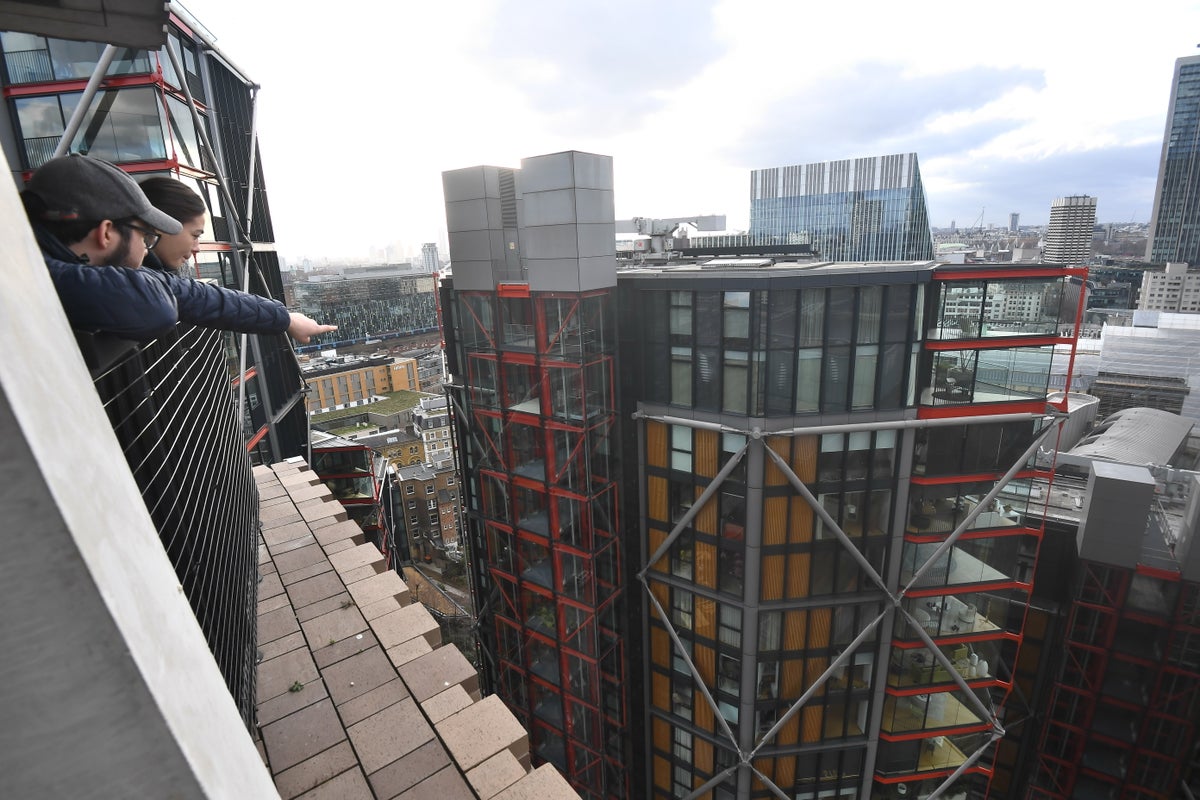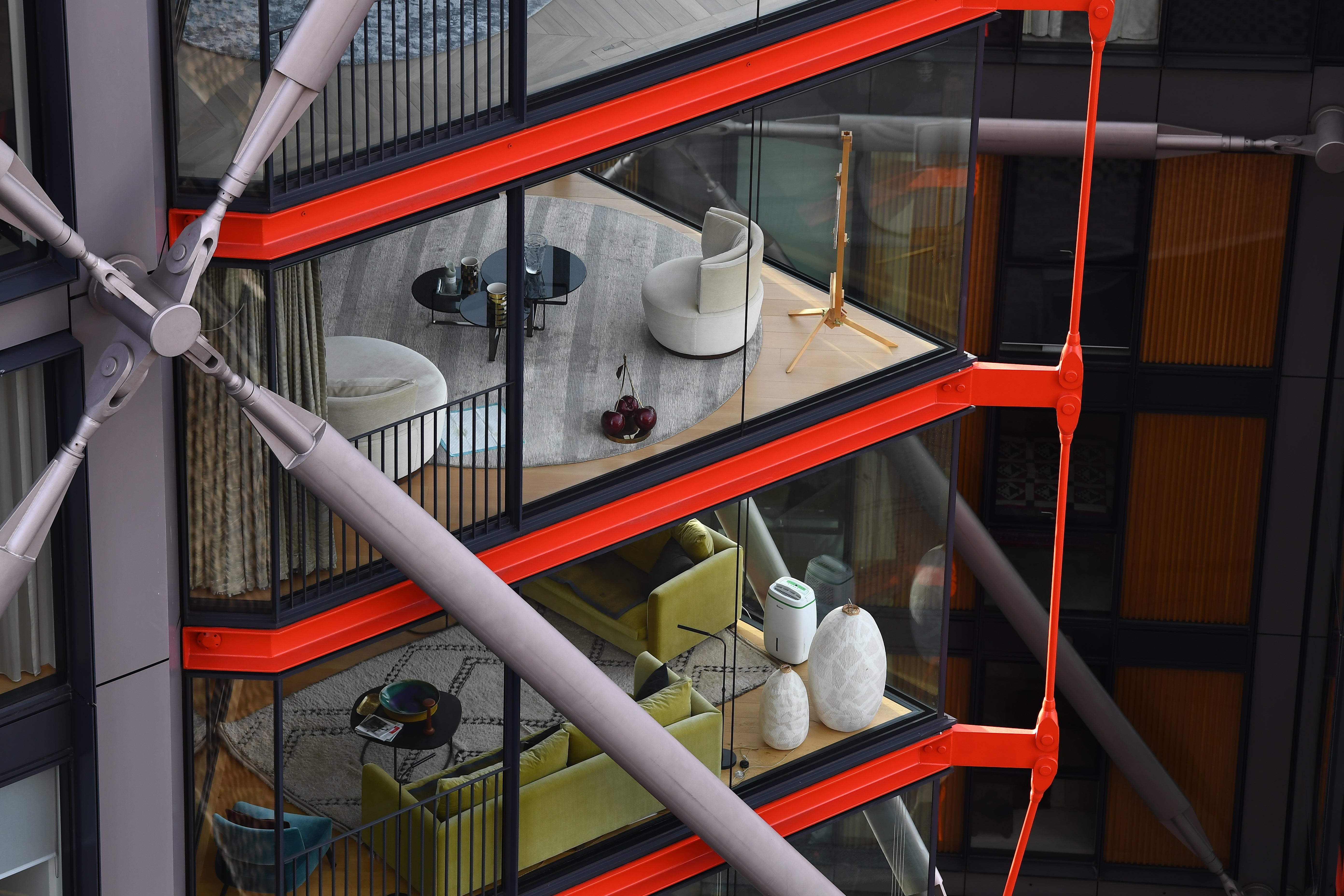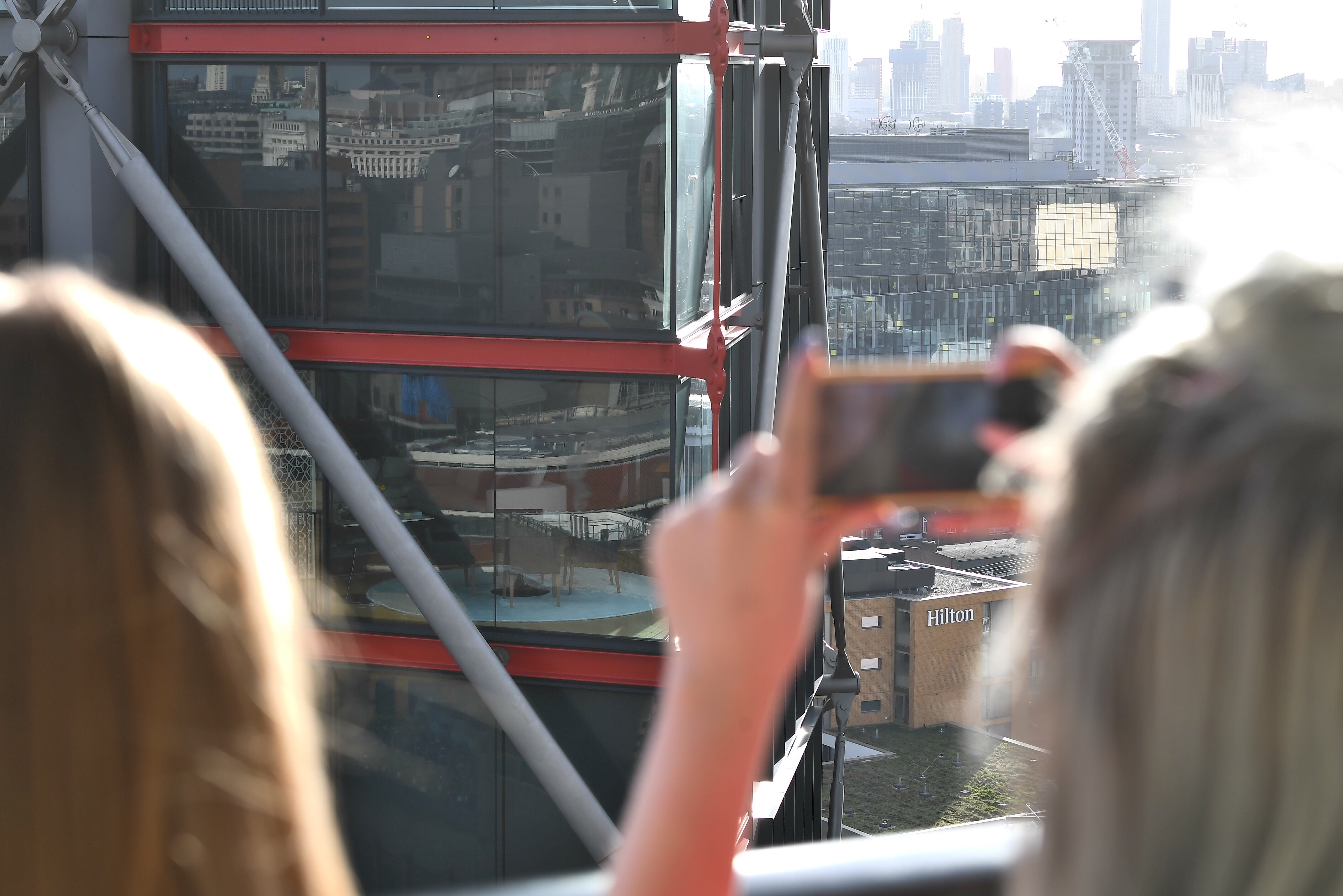
The owners of four flats overlooked by the Tate Modern in London have won a Supreme Court privacy bid over the use of the gallery’s viewing platform.
Residents of the Neo Bankside development on the capital’s South Bank took legal action against the gallery’s board of trustees in a bid to stop “hundreds of thousands of visitors” looking into their homes from the Tate’s viewing platform.
They applied for an injunction requiring the gallery to prevent members of the public observing their flats by “cordoning off” parts of the platform or “erecting screening”, to stop what they said was a “relentless” invasion of their privacy.
The five residents lost their case in the High Court and Court of Appeal, taking their case to the UK’s highest court in December 2021.
However, in a ruling on Wednesday, the Supreme Court ruled by a three-to-two majority in the residents’ favour.
Giving the court’s majority ruling, Lord Leggatt said the lower courts had found that the living areas of the flats – which have floor-to-ceiling windows – were under “constant observation from the Tate’s viewing gallery for much of the day, every day of the week”.
He continued: “It is not difficult to imagine how oppressive living in such circumstances would feel for any ordinary person – much like being on display in a zoo.”

Lord Leggatt found that the Tate Modern’s viewing gallery is not a “normal” use of the museum’s land and is a legal “nuisance” to the flat owners.
He said: “It is beyond doubt that the viewing and photography which take place from the Tate’s building cause a substantial interference with the ordinary use and enjoyment of the claimants’ properties.
“Inviting members of the public to look out from a viewing gallery is manifestly a very particular and exceptional use of land. It cannot even be said to be a necessary or ordinary incident of operating an art museum.”

In his ruling, with which Lord Reed and Lord Lloyd-Jones agreed, the Supreme Court justice said that a “normal use” of the Tate’s building would not allow the flat owners to bring a claim.
However, he added: “The nature and extent of the viewing of the claimants’ flats goes far beyond anything that could reasonably be regarded as a necessary or natural consequence of the common and ordinary use and occupation of the Tate’s land.”
Lord Leggatt said the case will now be returned to the High Court to determine a solution for the flat owners.







